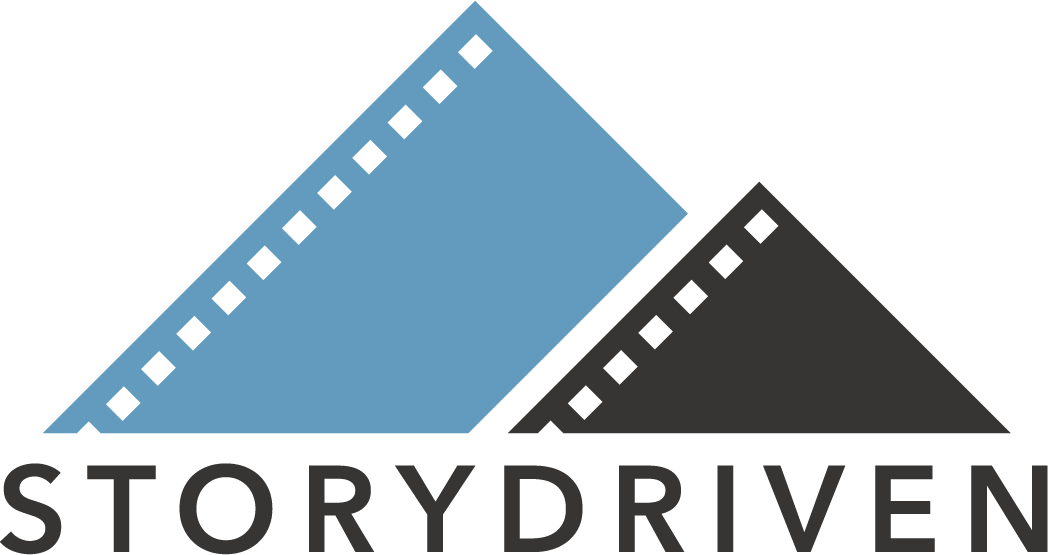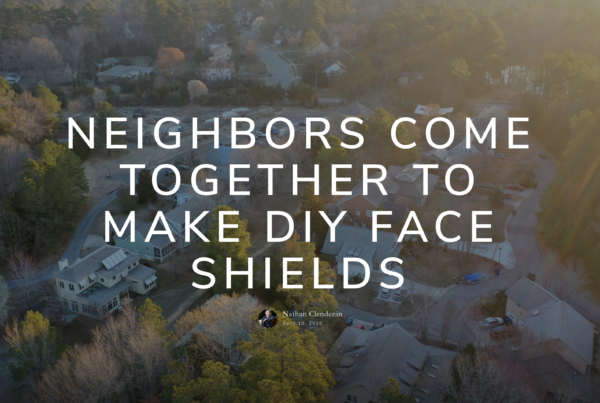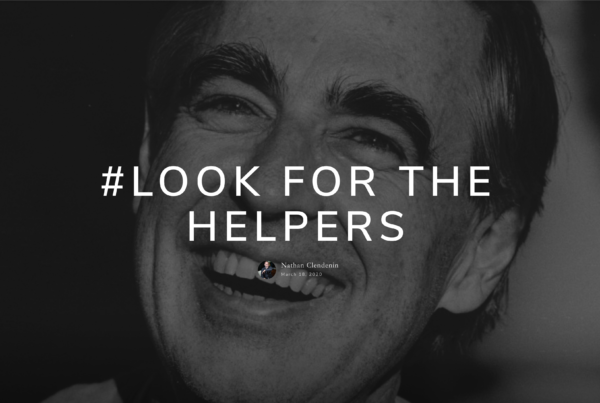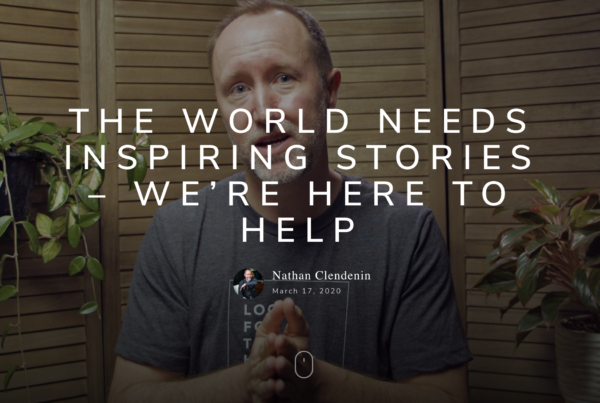I was in a panic. The deadline was approaching all too fast. I didn’t have a story yet. I don’t like letting people down. I do not like failure. Period. I would figure it out, stay up all night. I would do what it took, on my own, to get it done. But I would not let my client see me sweating.
But as I answered the check-in call with my client, I must have sounded flustered. Despite my attempts to pretend it was all under control, she knew I wasn’t being honest. What happened next has shaped me in ways I am still discovering today.
“If there’s a problem with the story, tell me about it,” she said. “I can help you. We will figure it out together.” I considered putting some more duct tape on my already failing front. But I took a deep breath and proceeded to tell her that we didn’t have a story yet. So many people had fallen through or failed to get back to me. Immediate relief washed over me. My client made some calls, we got the story and published it by the deadline.
I learned from that interaction the importance of transparency. And I learned it by failing at it. I thought she wouldn’t trust me if I admitted failure with the story, and that assumption actually damaged trust. Now I know that transparency, and thus vulnerability, actually builds trust. It feels risky, and it is. But the alternative is also risky, as your trust dies little by little, sometimes damaging your relationship beyond repair.
The work we do shapes us, as much as we shape the work
Whether we like it or not, the work we do shapes us, as much as we shape the work. It’s our choice to resist that shaping work or embrace it as an opportunity. At StoryDriven, we make beautiful videos that get results. Our process is full of opportunities to learn and grow, through failure. We realize that if we play it safe, our work will only ever be good, not great. Reaching for greatness is scary and risky, and you’re probably going to make mistakes along the way. And that’s okay.
If you don’t make mistakes, you’re probably not risking enough to do something really great. Many workplaces are unconsciously biased to demand perfection, rejecting mistakes. The result is mediocrity, not excellence.
What if we moved our goal from perfection to growth?
What would happen if we reframed failure? What if we moved our goal from perfection to growth?
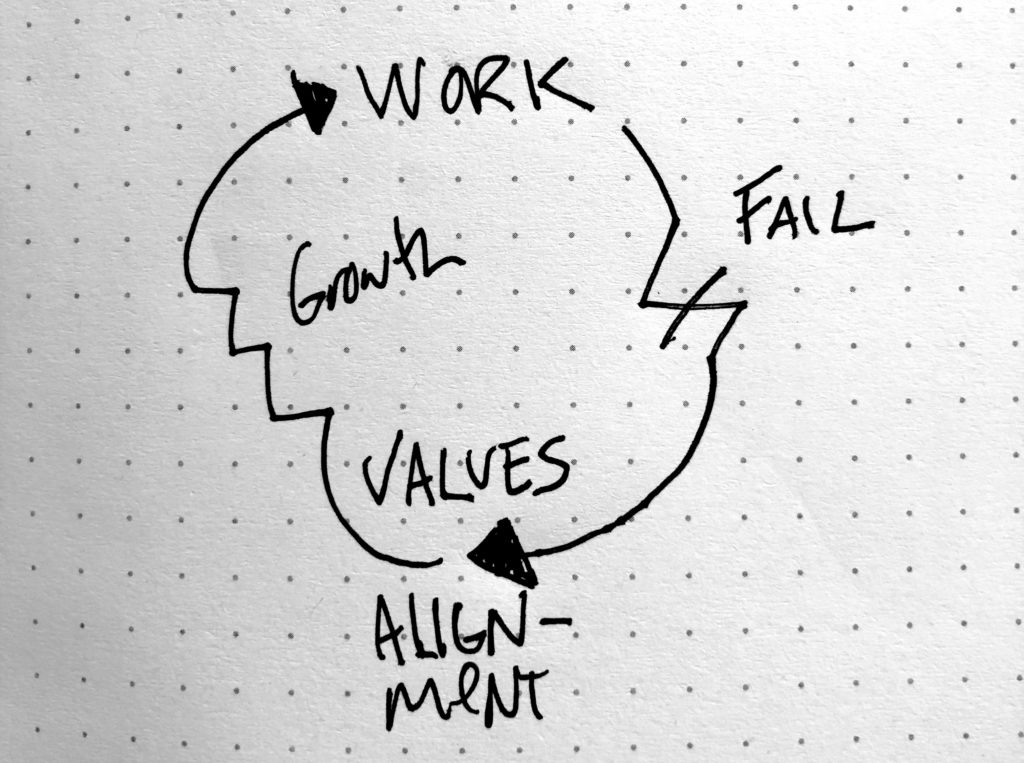 After all, the real value of a creative team is not the individuals and their talent, but the collaboration. In order for that to be true, each individual has to be open to the input of the others. Each act of vulnerability creates a new bond of trust. With each bond, the team value goes up. The culture is enhanced. Metrics like efficiency, employee retention, job satisfaction follow after. Because ultimately, people want to be known and belong to something greater than themselves. Creating that kind of environment all starts with ideals, values. We work, we fail, we re-align to values, and we learn. We take what we learned back into our work. Repeat.
After all, the real value of a creative team is not the individuals and their talent, but the collaboration. In order for that to be true, each individual has to be open to the input of the others. Each act of vulnerability creates a new bond of trust. With each bond, the team value goes up. The culture is enhanced. Metrics like efficiency, employee retention, job satisfaction follow after. Because ultimately, people want to be known and belong to something greater than themselves. Creating that kind of environment all starts with ideals, values. We work, we fail, we re-align to values, and we learn. We take what we learned back into our work. Repeat.
In summary (TL/DR): If you’re trying to save face by putting up a front of perfection, you’re actually degrading trust. If you keep it up, then you’re on a highway to disfunction at work. Instead, open up to your team, your boss, your employees, your clients. Let them help you. The connection and trust formed will build a thriving, creative culture.
